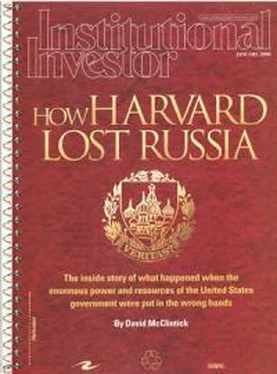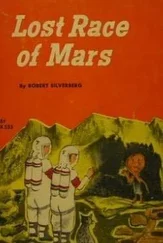The actual privatization was accomplished through basically giving away large segments of Russian assets - and consequently cash flows - to these stakeholders. The most notable insider stakeholders - the managers - ended up the biggest winners. They ended up owning most of Russian industry. This august group, more often than not, makes the Marx Brothers seem like models of German efficiency. For a variety of reasons, insider-owned firms are very inefficient, and indeed a long list of papers from the Bank - Fund complex testifies to this. Consequently, Russia is today reaping the whirlwind of its privatization policy. The long delayed supply-side response of the economy, that is supposed to be led by these insider-owned firms, simply refuses to happen.
To round out this stupidity ( and to make it theoretically neater), the advisors had to deal with the problem of insider ownership. They dealt with it in time honored economist fashion - they assumed it away. This was done by trotting out that most venerable of economic propositions - something called the Coase Theorem. In a series of seminal papers written at Chicago in the thirties, Ronald Coase reached a blindingly obvious conclusion on property rights. He proved that the initial allocation - or misallocation - of property rights would not matter as long as those rights could be traded till they found their highest valued end use. In other words, the advisors told the Russians, "Sure, we're making second-best or third-best policy choices on privatization , but hey guys, it doesn't matter. Through the magic of Coase, even if we misallocated the rights, they'll trade up to their highest valued end user, and we'll all live happily ever after ". Consequently, nothing mattered except getting the assets away from the government (depoliticization) and into the "private sector", thereby allowing
the Coase Theorem to work its magic.
The Russians believed this nonsense. The problems with using Coase as a rationale were commonsensical : too much monopoly power in the Russian economy and the fact that Coase himself never had anything remotely resembling Russia in mind, when he formulated the theorem. More crucially, capital markets which would be needed to trade property rights to their highest valued end use, were nonexistent or nascent, and continue to be so. One marvels at the Russians' own capacity for advice of this nature. My comfort is philosophical : It has often been said of the Russians, that they exhibit in extreme form, certain universal characteristics of the human condition.
Perhaps this tendency to extremes applies to their propensity for social engineering too.
In response to critiques of their advice, the foreign advisors resort to a "burden of proof " defense. In other words, they say, " What a pity it's a mess and had to be this way, but you'll have to prove it could have been otherwise". It is this "proving otherwise" that is a key issue. " Proving otherwise" would require a person with substantial economic expertise. Unfortunately most of the critiques of the advisors in Russia have come from people outside the economics community, which on Russia is quite tight knit.
Janine Wedel and Anne Williamson have made good first attempts . But given the enormity of the catastrophe in Russia that the advice has wrought, the definitive account will have to be from a person with some economic stature.
Who were these people anyway ? They include, Wedel and Williamson point out, Andrei Shleifer a Harvard economics professor, Jonathan Hay a freshly minted Harvard Law graduate, and Makim Boycko who was their man in Moscow. Shleifer, a Russian emigrant who remains a tenured professor at Harvard, must have possessed the great advantage of speaking native Russian. In December 1991, Shleifer on a World Bank consultancy authored a paper titled Privatization in Russia - First Steps. It is, I believe, the first systematic attempt at outlining the program's defining feature - privatization as a series of payoffs (or bribes as he called it) to key stakeholders in the process.
Later explications of the basic idea may be found in articles he co-authored with Robert Vishny on the process. Both the unpublished document and later articles remarkably parallel the basic philosophy of the State Privatization Program of June 1992.
A sense of moral outrage over the effects of their policies - while a great temptation - has to be avoided at all costs. This is especially difficult when one considers that the principal protagonists - Andrei Shleifer and Jonathan Hay - are under investigation for alleged insider trading and conflicts of interest in Russia. [ GAO and USAID having found that they "abused the trust of the US government " etc ]. The temptation might therefore be to focus on that entire shabby episode as Wedel and Williamson have done ( in part, but only in part). There is no need for this. The charges are unproven. Besides the amounts Shleifer and Hay are accused of improperly dealing in, are a pittance, compared to the wholesale thievery their ideas sanctioned. The real story is in the voucher scheme they designed and implemented. Told coldly, rationally, and solely concerned with the truth, it will still be a great story. Behind the story after all, loom the long shadows of the millions of Russians whose lives were effected by these disastrous policies. They deserve the truth.
Will the story be told with integrity. I am afraid not. There are too many reputations and too much credibility at stake. The usual candidate would be someone of stature in academia. This is not really an option. The old Kremlinologists have been largely rendered irrelevant by the pace of events and are struggling to retool themselves. The younger economists who work on Russia, who have access to the data and hands-on experience, are the least likely candidates given the devastating outcomes of the policies they advocated. Self serving rationalizations with little intellectual integrity are all that can be expected from this group. Witness for example, Anders Aslunds' comic absurdity "How Russia became a Market Economy". If Russia is a market economy, then I, sir, am a monkey's uncle -- Finally it would be too much to expect the protagonists themselves - Shleifer and his collaborators - to say " We were wrong, terribly wrong". An old man named Robert McNamara looking back on his life, said that about a war that ended twenty five years back, and look at the condemnation that brought him. It would be too much to expect Shleifer and the others - all reportedly in their late thirties and early forties - to make such an admission.
The World Bank is another candidate, but they will distort the tale. The Bank's division that does such studies - the Operations Evaluation Department - will use the standard bureaucratic boiler plate it excels at. Besides the Bank itself picked up the substantial ideas and policies from the Harvard group, and has its own credibility at stake. While some hand wringing can be expected, so can a less than zealous concern for the truth. Besides, even if it is honest, the drama of the story will be lost in the telling.
... ... ...
The reasons of such a behavior by Andrei Shleifer and other players "on the ground" probably run deeper. As Stefan Lemieszewski noted in his letter to Johnson's Russia List:
The failure of these IMF/World Bank/State/Treasury programs should not come as a surprise. Economists such as Michel Chossudovsky (University of Ottawa) go further and suggest that they are by design . In his book, "The Globalization of Poverty: Impacts of IMF and World Bank Reforms" Chossudovsky writes:
"The IMF-Yeltsin reforms constitute an instrument of "Thirdworldisation" ; they are a carbon copy of the structural adjustment programme imposed on debtor countries in Latin America and sub-Saharan Africa. Harvard economist Jeffrey Sachs, advisor to the Russian government, had applied in Russia the same 'macro-economic surgery' as in Bolivia where he was economic advisor to the MNR government in 1985.
Читать дальше






![Джонатан Димблби - Barbarossa - How Hitler Lost the War [calibre]](/books/385421/dzhonatan-dimblbi-barbarossa-how-hitler-lost-the-w-thumb.webp)





